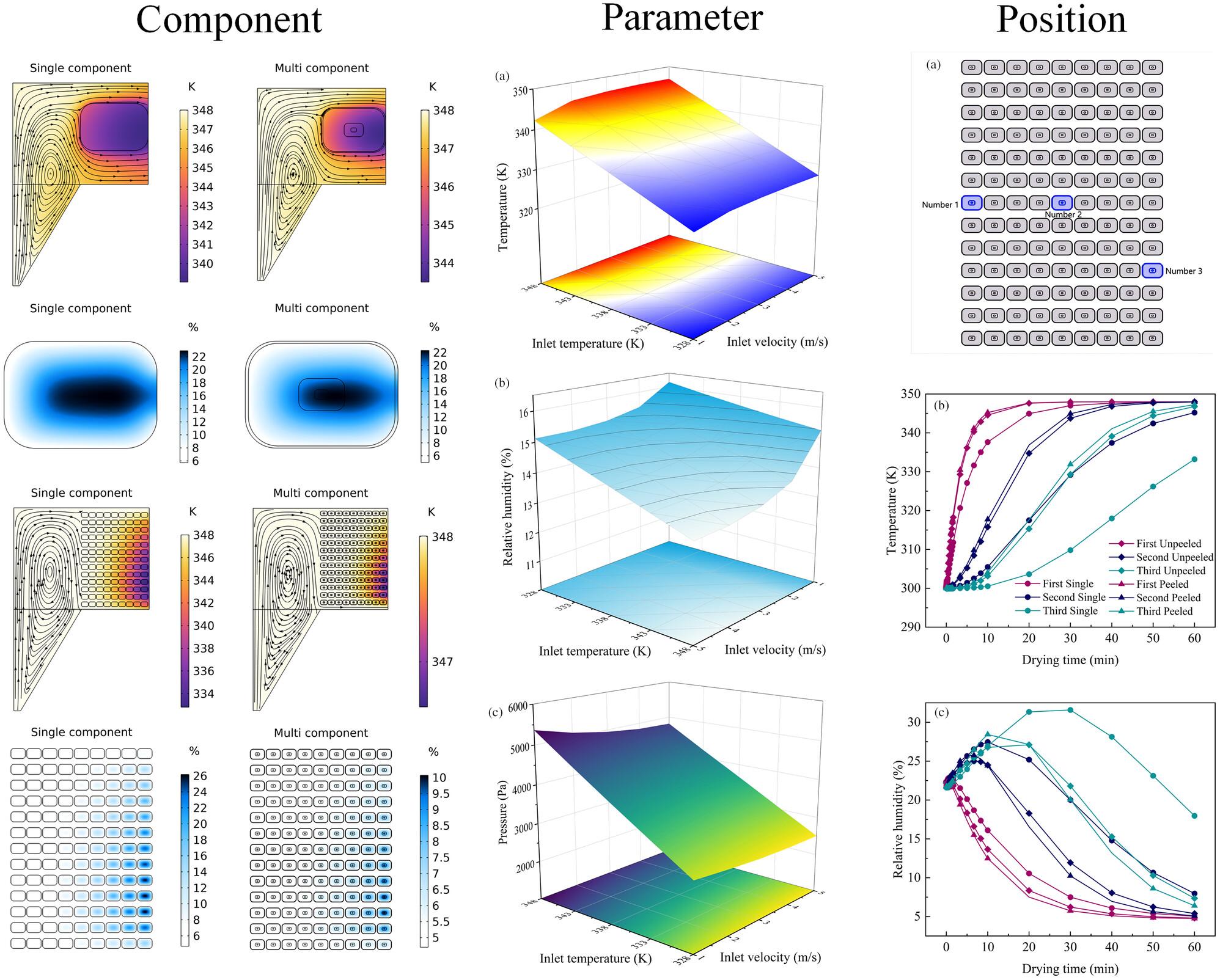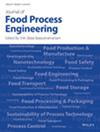Research on drying characteristics of corn kernel based on COMSOL porous media model
Abstract
Drying is an effective way to solve corn mildew. The heat and humidity flow interface in COMSOL Multiphysics heat transfer module was used to coupling fluid flow, water transport and heat transfer in multiple physical fields, and corn was used as a porous medium for simulation analysis, aiming to find the change rules of temperature field and humidity field. The research shows that the multi-component model and method should be given priority in practice. The higher the hot air temperature is, the higher the average temperature of corn kernels is, and the faster the relative humidity decreases. The drying rate of corn is the highest at 348 K, and the hot air temperature should be appropriately increased at 333 K denaturation temperature. The higher the wind speed, the better the drying effect of corn kernels, but the improvement of drying effect will decrease with the increase of wind speed. Appropriately increase the wind speed between 2 and 4 m/s to improve the drying efficiency while avoiding excessive energy consumption. The mass transfer resistance of the pericarp cannot be ignored. The drying time of corn kernels closer to the hot air entrance is shorter, and the corn kernels close to the hot air exit are prone to humidity accumulation. Multiple hot air intakes should be set up to reduce the occurrence of uneven drying.
Practical applications
Corn is prone to mildew after harvest, resulting in resource waste and economic loss, so it is of great significance to dry corn efficiently. Corn is a typical porous medium, and the research on it can provide the basis for drying other porous medium grains. According to different components, the model of single granule and multi-granule was established respectively. Use COMSOL Multiphysics simulation software to gain a deeper understanding of the complex physical processes involved in the drying process and provide valuable insights for industrial applications. COMSOL software was used to study the drying condition of corn under the synergic action of multiple physical fields, and effective drying strategies and measures to improve the structure of air drying silo were put forward.


 求助内容:
求助内容: 应助结果提醒方式:
应助结果提醒方式:


